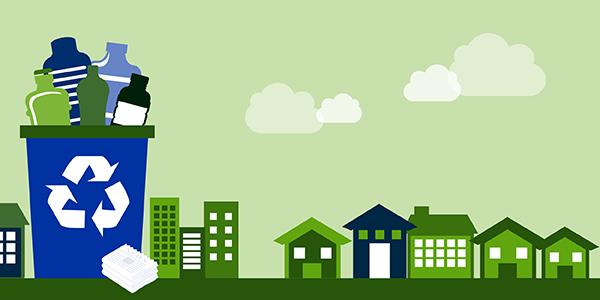The majority of people want to do their part to help the environment. A variety of methods can be used to achieve this goal, such as reducing one’s driving habits or avoiding goods like plastic water bottles. Looking back at previous habits like recycling might help you find new ways to live a more ecologically responsible lifestyle.
It’s easy to forget about recycling now that it’s mainstream. Despite the fact that they think it’s out-of-date, it has a positive impact on the environment.
The following are some of the advantages that recycling has for the environment. Inspiring you to decrease your waste and recycle more might be as simple as looking at what others are doing.
One of the benefits of recycling is that it helps to maintain the level of oxygen in the atmosphere.
Paper is taken for granted by many people. It’s a tool that helps us learn and communicate in work and school. To make it, trees must be felled, and yet it is used to line books or to wrap presents.
Reusing paper is an easy way to help keep oxygen levels high around the world, which is especially critical as global temperatures continue to rise at an unprecedented rate. New York Times Sunday edition requires the destruction of more than 75,000 trees to generate the many pages. It takes more than 260 pounds of oxygen from a tree to produce one pound of new paper from recycled resources.
Landfill Waste Is Reduced Via Recycling
Despite the fact that landfills are a common place to dispose of rubbish, many of the recyclable materials found there can be put to good use. Take advantage of these items and begin recycling what you use on a regular basis instead of throwing them away!
Recyclable Waste Disposal
Dismantling and reassembling cardboard is a breeze.
Recycled glass can be any type, as long as it can be melted and reformed.
Recycling facilities use shredded and melted aluminium to make cans.
Unnecessary Items.
Styrofoam decomposition releases dioxins into the atmosphere, but it is not recyclable.
The remaining components in glass lightbulbs can’t be separated by recycling facilities.
Plastic bags are often discarded in landfills because most recycling facilities lack the equipment necessary to properly separate and process them.

Reduces The Amount Of Energy Needed To Produce New Products
Recycling uses less energy than burning or treating waste in a landfill. A normal recycling bin consumes far more power per unit of recovered material than these machines do. When compared to the amount of electricity needed to produce new materials, the amount of energy saved only grows.
Ecosystems Are Protected Via Recycling
When trees are cut down for paper, more than only oxygen levels in the atmosphere are lowered. Depleted natural ecosystems are a result of reduced forest cover. Because of human activities, animals in the animal kingdom are already facing a demographic crisis due to a lack of access to natural food and shelter.
Recycling Has A Positive Impact On The Oceans
Every year, eight million metric tonnes of plastic waste are dumped into the ocean, endangering marine life in the process. Marine life is being ravaged by toxic microplastics, not plastic rings or bottles. As a result of recycling, plastic waste does not end up in the oceans as frequently.
















